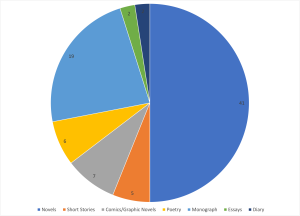Article: The Truth Wears Off, by Jonah Lehrer (The New Yorker)
Lehrer writes about the “decline effect” in scientific research– the fact that the results of many experiments tend to diminish or even disappear upon replication. He suggests that this phenomenon may be largely the result of perception bias — scientists know what results they hope to find, and so tend, unconsciously to find them; and journals tend to publish only positive results, which means that all of the studies that do NOT find a given effect are never reported. All of this adds up to frequent reporting of results that turn out to be due largely to chance, and which therefore vanish when experiments are replicated. This decline effect is actually extremely common, which suggests that a lot of scientific discoveries are far less reliable than we like to believe.
Song: “Know Me” by Frankie Rose
This song didn’t immediately blow me away, but it hasn’t left my head since I heard it the first time, and I find I don’t mind.
Artist: Guy Laramee
Totally amazing sculptures carved from old books. Much, much cooler than this description makes them sound. See here:
Article: The Disappointment Author, by Sam Allingham
A thoughtful sort of meta-piece about an Article Jonathan Lethem wrote (available here: http://lareviewofbooks.org/post/12467824780/my-disappointment-critic) about James Wood’s review of Lethem’s novel Fortress of Solitude.
Allingham, in a defense of Wood, discusses the way critics use (or should use) evidence from the work in question to make their case. Interestingly, he takes Lethem’s piece as a work of criticism about Wood’s criticism– and finds fault with Lethem’s critical practice. Allingham argues, ultimately, that when looking at a work of criticism we should be “more interested in the evidence than the verdict”– i.e., more concerned with how the author makes their case about the book being reviewed, and what that case tells us about the book, than with whether they liked it or not. He suggests that Lethem’s piece offers little evidence to support his claim that Wood reviewed his novel carelessly, or did not understand it, and argues that Wood himself, whatever his conclusion, always offer substantial evidence, mostly in the form of quotations, from the books he reviews.
All this raises some interesting questions about what the standards of evidence should be for criticism. If it is not to descend into mere “opinion” — the kind of which we acknowledge that “everyone has one”– then it has to make its case in some way that, in itself, as a method, can be identified and evaluated.
Article: “Heroine Chic,” by Evie Nagy
Totally fascinating review article about Miss Fury, a superheroine who preceded Wonder Woman (very slightly) and was, in a number of ways, much closer to what many of us would like female comic characters to be– and this in the 1940s. Good stuff.
And finally, to round out the week:
Video: Sh*t Nobody Says
What it sounds like.



